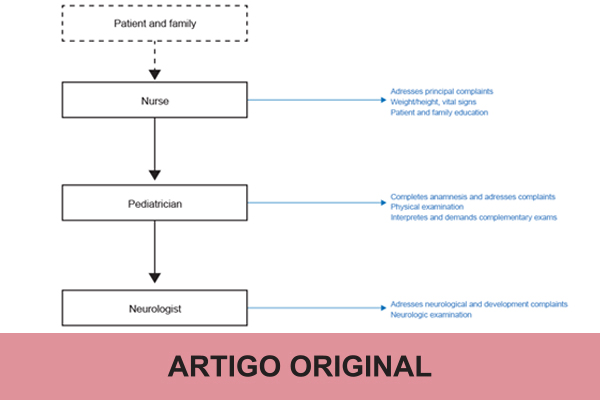SOCIAL MEDIA
Portuguese Medical Association's Scientific Journal

Introduction: Neurocutaneous syndromes (NCS) are a heterogeneous group of conditions with multiorgan involvement and diverse manifestations, evolving throughout life with significant morbidity. A multidisciplinary approach to NCS patients has been advocated, although a specific model is not yet established. The aim of this study was 1) to describe the organization of the recently created Multidisciplinary Outpatient Clinic of Neurocutaneous Diseases (MOCND) at a Portuguese pediatric tertiary hospital; 2) to share our institutional experience focusing on the most common conditions, neurofibromatosis type 1 (NF1) and tuberous sclerosis complex (TSC); 3) to analyze the advantages of a multidisciplinary center and approach in NCS.
Methods: Retrospective analysis of 281 patients enrolled in the MOCND over the first five years of activity (October 2016 to December 2021), reviewing genetics, family history, clinical features, complications, and therapeutic strategies for NF1 and TSC.
Results: The clinic works weekly with a core team of pediatricians and pediatric neurologists supported by other specialties as needed. Of the 281 patients enrolled, 224 (79.7%) had identifiable syndromes such as NF1 (n = 105), TSC (n = 35), hypomelanosis of Ito (n = 11), Sturge-Weber syndrome (n = 5), and others. In NF1 patients, 41.0% had a positive family history, all manifested café-au-lait macules, 38.1% neurofibromas with 45.0% being large plexiform
neurofibromas. Sixteen were under treatment with selumetinib. Genetic testing was performed in 82.9% of TSC patients with pathogenic variants found in TSC2 gene in 72.4% patients (82.7% if considered contiguous gene syndrome). Family history was positive in 31.4%. All TSC patients presented hypomelanotic macules and fulfilled diagnostic criteria. Fourteen patients were being treated with mTOR inhibitors.
Conclusion: Offering a systematic and multidisciplinary approach to NCS patients enables timely diagnosis, promotes a structured follow-up, and encourages discussion to outline management plans for optimal care to every patient, with significant impact on the quality of life of patients and families.